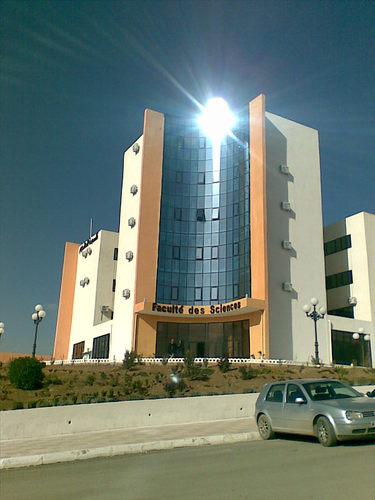|
| Titre : |
Deep Learning based method for features selection of Gene Expression Data |
| Type de document : |
texte imprimÃĐ |
| Auteurs : |
Kerkour ,Ibtissem, Auteur ; Mekroud,Noureddine, Directeur de thÃĻse |
| Editeur : |
Setif:UFA |
| AnnÃĐe de publication : |
2021 |
| Importance : |
1 vol (97 f .) |
| Format : |
29 cm |
| Langues : |
Français (fre) |
| CatÃĐgories : |
ThÃĻses & MÃĐmoires:Informatique
|
| Mots-clÃĐs : |
Informatique |
| Index. dÃĐcimale : |
004 - Informatique |
| RÃĐsumÃĐ : |
From the real mode, biological data is one of the most studied data. Given the vital importance of the knowledge hidden in these very large and heterogeneous databases, the need to analyze them through automatic and rational processing has given rise to a new line of research: bioinformatics.
The development of the embryo of a few model species is monitored by image sequences representing the genetic expression areas of each gene during the embryo growth phases. These images hide a lot of crucial and unknown knowledge that will help biologists to follow and understand the stages of development of living things, and to study the impact of gene expressions in each phase. But, the volume of these data still remains an obstacle for their study and understanding, and the reduction of their size and a persistent challenge.
Reliable reduction in the dimensions of the data studied will reduce the complexity of any training algorithms used, and help improve the quality of presentation and visualization of the results obtained. Autoencoders extract the most influential characteristics, which can then be used in a machine learning algorithm to extract relevant knowledge using fewer variables and with fewer parameters.
In this perspective, the objective of our approach is the extraction, via a proposed convolutional auto-encoder model, of a compressed number of attributes from the gene expression image sequences of the model species. Edinburgh Mouse, to then look for rules of association between the genes that are expressed during the developmental phases of the embryo of this species. A representation and validation of the results, as well as a biological interpretation of the extracted knowledge, will then be provided, which will help biologists to understand the stages of development of the embryo of living species. |
| Côte titre : |
MAI/0532 |
| En ligne : |
https://drive.google.com/file/d/1TQ1Ihxm3lc9PmoUqbkN2va0mewdnRW7C/view?usp=shari [...] |
| Format de la ressource ÃĐlectronique : |
pdf |
Deep Learning based method for features selection of Gene Expression Data [texte imprimÃĐ] / Kerkour ,Ibtissem, Auteur ; Mekroud,Noureddine, Directeur de thÃĻse . - [S.l.] : Setif:UFA, 2021 . - 1 vol (97 f .) ; 29 cm. Langues : Français ( fre)
| CatÃĐgories : |
ThÃĻses & MÃĐmoires:Informatique
|
| Mots-clÃĐs : |
Informatique |
| Index. dÃĐcimale : |
004 - Informatique |
| RÃĐsumÃĐ : |
From the real mode, biological data is one of the most studied data. Given the vital importance of the knowledge hidden in these very large and heterogeneous databases, the need to analyze them through automatic and rational processing has given rise to a new line of research: bioinformatics.
The development of the embryo of a few model species is monitored by image sequences representing the genetic expression areas of each gene during the embryo growth phases. These images hide a lot of crucial and unknown knowledge that will help biologists to follow and understand the stages of development of living things, and to study the impact of gene expressions in each phase. But, the volume of these data still remains an obstacle for their study and understanding, and the reduction of their size and a persistent challenge.
Reliable reduction in the dimensions of the data studied will reduce the complexity of any training algorithms used, and help improve the quality of presentation and visualization of the results obtained. Autoencoders extract the most influential characteristics, which can then be used in a machine learning algorithm to extract relevant knowledge using fewer variables and with fewer parameters.
In this perspective, the objective of our approach is the extraction, via a proposed convolutional auto-encoder model, of a compressed number of attributes from the gene expression image sequences of the model species. Edinburgh Mouse, to then look for rules of association between the genes that are expressed during the developmental phases of the embryo of this species. A representation and validation of the results, as well as a biological interpretation of the extracted knowledge, will then be provided, which will help biologists to understand the stages of development of the embryo of living species. |
| Côte titre : |
MAI/0532 |
| En ligne : |
https://drive.google.com/file/d/1TQ1Ihxm3lc9PmoUqbkN2va0mewdnRW7C/view?usp=shari [...] |
| Format de la ressource ÃĐlectronique : |
pdf |
|


 Ajouter le rÃĐsultat dans votre panier Affiner la recherche
Ajouter le rÃĐsultat dans votre panier Affiner la recherche

